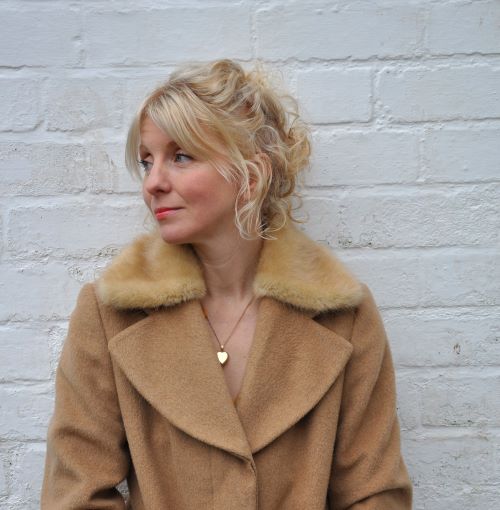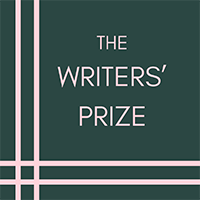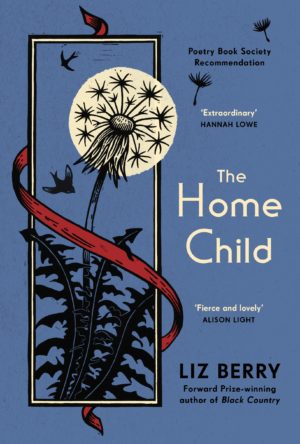WINNER OF THE WRITERS’ PRIZE BOOK OF THE YEAR 2024
The Home Child
Liz Berry
In 1908, Eliza Showell, twelve years old and newly orphaned, boards a ship that will carry her from the slums of the Black Country to rural Nova Scotia. She will never return to Britain or see her family again. She is a Home Child, one of thousands of British children sent to Canada to work as indentured farm labourers and domestic servants.
In Nova Scotia, Eliza’s world becomes a place where ordinary things are transfigured into treasures – a red ribbon, the feel of a foal’s mane, the sound of her name on someone else’s lips. With nothing to call her own, the wild beauty of Cape Breton is the only solace Eliza has – until another Home Child, a boy, comes to the farm and changes everything.
Inspired by the true story of Liz Berry’s great aunt, this spellbinding novel in verse is an exquisite portrait of a girl far from home.
“It feels like a dream come true to be winning – I still can’t quite believe it.”
Liz Berry is an award-winning poet and author of the critically acclaimed collections Black Country (Chatto, 2014); The Republic of Motherhood (Chatto, 2018); The Dereliction (Hercules Editions, 2021), a collaboration with artist Tom Hicks; and The Home Child (Chatto, 2023), a novel in verse. She lives in Birmingham with her family.
At what age did you know you wanted to become a writer?
I was very lucky because I grew up in a family where books and poems were treasured and so I fell in love with poetry when I was young. I loved it in that open-hearted way that children do – without any fretting. From when I was very small, my mom and dad encouraged me to make up my own poems and eventually to write them down.
I remember writing what felt like my first real poem when I was about eight. It was about the women who lived in my street in Dudley. I took it all very seriously. My teacher gave me a blank exercise book and on the front she’d written “Elizabeth Berry – Poems”.
From then on, I dreamt that curious dream of becoming a poet (although I didn’t know if, when or how this dream might come true!)
What was your favourite childhood book?
Anne of Green Gables by L.M. Montgomery. This was also the book that led me to write The Home Child. I discovered Eliza’s story when I was setting off for Canada on a literary pilgrimage to Green Gables. My mother was tracing her family tree and uncovered my great aunt Eliza’s emigration records as a British Home Child. Eliza’s story felt movingly like a shadow to Anne’s: both twelve-year-old orphans, born poor and exploited, but full of wonder. I followed Eliza’s route from her birthplace in the Black Country out to Cape Breton, Nova Scotia, and finally to the rural cemetery where she’s buried. Laying wildflowers on Eliza’s small grave, I knew I wanted to bring her story – and those of Home Children like her – to the light.
Which is your favourite book of recent years?
Reading is one of my greatest joys and there’s been so many books I’ve loved recently that I can never pick a single favourite. So, here’s a few that captured my head/heart: Young Mungo by Douglas Stuart; Small Things Like These by Claire Keegan; Matrescence by Lucy Jones; My Child, The Algorithm by Hannah Silva; A Ghost in the Throat by Doireann Ni Ghriofa, short stories by Wendy Erskine, Sarah Hall, Saba Sams and Daisy Johnson; poems by Zaffar Kunial, Amy Acre, Fiona Benson, Warsan Shire and Sean Hewitt.
What three books would you take to your Desert Island?
I’d like to take a lovely fat anthology of poetry from around the world, something like the brilliant Staying Alive series from Bloodaxe; a book of folk songs to learn (to sing?); and some juicy fairytales from Angela Carter.
(Also, a notebook with plain pages that never runs out, please!)
What is your ‘if you don’t like this, you can’t be my friend’ book?
I don’t have one, I enjoy hearing what other people like and dislike about books. I run a Shared Reading group for The Reader at my local library and when we read a story or a poem people sometimes have wildly different feelings about it and I enjoy the way that opens things up for us (even if it’s a poem or story I secretly adore!)
Who or what have been your most important influences?
The women poets of the generation above mine have been beacons of courage and inspiration to me: Moniza Alvi, Kathleen Jamie, Pascale Petit, Carol Ann Duffy, Jackie Kay, Vicki Feaver, Selima Hill, Sharon Olds, Jo Shapcott…
To answer the question another way, I might say the Black Country, the region where I was born. Its history, landscape, people, and its beautiful, tough, lyrical dialect have had such a profound influence on my writing and the way I see the world.
Which of the other shortlisted titles are you most excited to read?
Laura Cumming’s Thunderclap: A Memoir of Life and Art and Sudden Death
If you weren’t a writer, what would you be doing?
Teaching Reception. I started out as a primary school teacher and I loved teaching the little ones. My advice to young poets is always to try to find a day job that you love, no matter what that might be. So, if I wasn’t writing poems, then you’d find me reading to my class or helping someone to build a robot out of yoghurt pots and silver foil.


